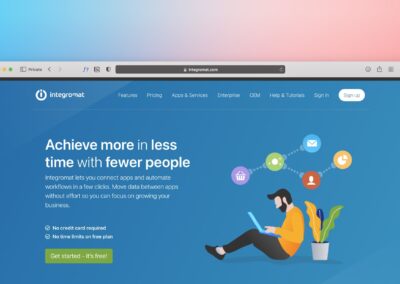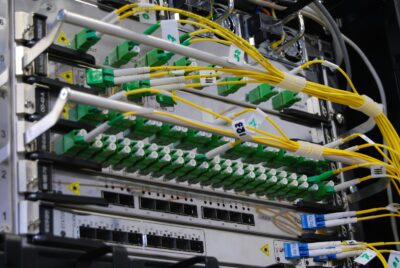Addressing Challenges and Opportunities in Riyadh and Dubai
The Role of Technology in Social Support Networks
Technology has significantly transformed social support networks, especially in regions like Saudi Arabia and the UAE. In cities such as Riyadh and Dubai, modern technology plays a crucial role in enhancing communication and connectivity among individuals. Social media platforms, messaging apps, and video conferencing tools have made it easier for people to stay connected with their families and friends, regardless of geographical distances. For aging populations, technology can provide a vital link to social support networks, reducing feelings of isolation and loneliness. However, the reliance on technology also poses challenges. The digital divide, particularly among older adults who may not be as tech-savvy, can hinder their ability to access these benefits. Additionally, over-reliance on virtual interactions can sometimes diminish the quality of in-person relationships. In Riyadh and Dubai, addressing these challenges involves ensuring that technological advancements are inclusive and that older adults are provided with the necessary skills and resources to engage with digital platforms effectively.
Technology and Caregiving: Enhancing Efficiency and Quality
The integration of technology in caregiving has the potential to enhance the efficiency and quality of care provided to aging populations. In Saudi Arabia and the UAE, where healthcare infrastructure is rapidly advancing, technologies such as telemedicine, wearable health monitors, and AI-driven care management systems are revolutionizing the caregiving landscape. Telemedicine allows healthcare providers to deliver care remotely, making it easier for older adults to access medical advice and consultations without leaving their homes. Wearable health monitors can track vital signs and alert caregivers to any health anomalies in real-time, enabling timely interventions. AI-driven systems can assist in care management by scheduling appointments, managing medications, and providing personalized care plans. While these technologies offer significant benefits, they also come with challenges. Privacy concerns, the need for data security, and the potential for reduced human interaction in caregiving are issues that need to be carefully managed. Policymakers in Riyadh and Dubai must develop frameworks that ensure the ethical use of technology in caregiving while maintaining the human touch that is essential for compassionate care.
Impact on Social Support Networks in Aging Populations
The impact of technology on social support networks among aging populations in Saudi Arabia and the UAE is profound. As the population ages, maintaining strong social connections becomes increasingly important for mental and emotional well-being. Technology can facilitate these connections through various means. For instance, virtual reality (VR) can provide immersive experiences that allow older adults to “visit” places they may no longer be able to physically travel to, enhancing their quality of life. Social robots can offer companionship and engage in meaningful interactions, reducing feelings of loneliness. Online communities and support groups can provide a platform for older adults to share experiences, seek advice, and offer support to each other. However, the adoption of these technologies must be approached with caution. Ensuring that older adults are not left behind in the digital age requires targeted efforts to improve digital literacy and access. In Riyadh and Dubai, initiatives aimed at bridging the digital divide and promoting the use of technology among older adults can help maximize the benefits while mitigating the risks.
Blockchain and AI: Ensuring Secure and Efficient Care
Blockchain and AI technologies can significantly enhance the security and efficiency of caregiving for aging populations. In Saudi Arabia and the UAE, where data security and efficient healthcare delivery are paramount, blockchain offers a secure and transparent way to manage health records and transactions. By recording data on a decentralized ledger, blockchain technology ensures that health information is immutable and accessible only to authorized individuals, reducing the risk of data breaches. AI, on the other hand, can analyze vast amounts of data to predict health trends, identify potential issues early, and personalize care plans for individuals. In cities like Riyadh and Dubai, integrating blockchain and AI in caregiving can streamline processes, enhance patient outcomes, and ensure that care is both effective and secure. However, it is essential to address ethical considerations and ensure that these technologies are used responsibly and transparently.
The Metaverse and Virtual Caregiving
The concept of the metaverse, a virtual universe where users can interact with digital environments and each other, presents new possibilities for caregiving. In technologically forward regions like Saudi Arabia and the UAE, the metaverse can revolutionize how caregiving is delivered. For instance, virtual caregiving platforms can provide interactive and engaging environments for older adults, offering social interaction, cognitive stimulation, and even virtual healthcare consultations. These platforms can create a sense of community and support for those who may be isolated or homebound. However, the integration of the metaverse in caregiving also raises concerns about data privacy, security, and the potential for reduced human interaction. Policymakers in Riyadh and Dubai must carefully consider these factors when developing regulations and guidelines for virtual caregiving to ensure that it is both beneficial and secure for aging populations.
Generative AI in Caregiving: Innovations and Ethical Considerations
Generative AI, which can create new content and ideas, is paving the way for innovations in caregiving. In the advanced markets of Saudi Arabia and the UAE, generative AI can develop personalized care plans, create engaging content for cognitive stimulation, and even generate empathetic responses for virtual companions. These innovations can significantly enhance the quality of care provided to aging populations. However, the rise of generative AI also necessitates careful consideration of ethical guidelines and the potential for misuse. For instance, ensuring that AI-generated content is accurate, empathetic, and free from bias is crucial. In Riyadh and Dubai, fostering a collaborative environment between AI developers, healthcare providers, and regulators can ensure that generative AI is used responsibly and ethically in caregiving.
Leadership and Management Skills in the Age of Technological Caregiving
Effective leadership and management are crucial for navigating the complexities of integrating technology into caregiving. In regions like Saudi Arabia and the UAE, where technological advancements are rapidly transforming industries, leaders must be equipped to manage the ethical, social, and economic implications of technology in caregiving. This involves fostering a culture of innovation, promoting ethical technology practices, and ensuring that teams are well-versed in the latest caregiving technologies. In Riyadh and Dubai, business leaders play a pivotal role in championing responsible technology development, advocating for regulations that protect societal interests, and driving initiatives that leverage technology for positive impact. By prioritizing ethical leadership and management, organizations can harness the potential of technology in caregiving while addressing its challenges, ultimately contributing to sustainable growth and societal well-being.
Project Management for Technological Caregiving Initiatives
Effective project management is essential for the successful implementation of technological caregiving initiatives. In regions like Saudi Arabia and the UAE, where technological advancements are continuous, project managers must ensure that caregiving technology projects are well-planned, executed, and monitored. This involves coordinating with various stakeholders, managing resources, and adhering to ethical guidelines. In cities such as Riyadh and Dubai, project managers play a key role in integrating advanced caregiving technologies into business operations and public services. By adopting best practices in project management, organizations can enhance their caregiving capabilities, minimize risks, and achieve long-term success in technology integration. This proactive approach ensures that caregiving technologies are developed and deployed responsibly, benefiting both individuals and society.
Conclusion: Navigating the Future of Technology in Caregiving
The development and integration of technology in caregiving present significant opportunities and challenges for society. In Saudi Arabia and the UAE, where innovation is a driving force, addressing the ethical implications of technology in caregiving is essential for ensuring a balanced and ethical future. By developing robust public policies, leveraging advanced technologies like blockchain and AI, and fostering ethical leadership, these regions can navigate the complexities of technology integration in caregiving. Effective regulation and proactive management will ensure that caregiving technologies are used responsibly, benefiting individuals and society while protecting personal rights and societal values. As the world moves toward a future where technology plays a significant role in caregiving, Saudi Arabia and the UAE can lead the way in pioneering ethical and sustainable caregiving practices.
—
#TechnologyInCaregiving, #SocialSupportNetworks, #AgingPopulations, #AI, #Blockchain, #Metaverse, #GenerativeAI, #LeadershipSkills, #ManagementSkills, #ProjectManagement, #SaudiArabia, #UAE, #Riyadh, #Dubai























